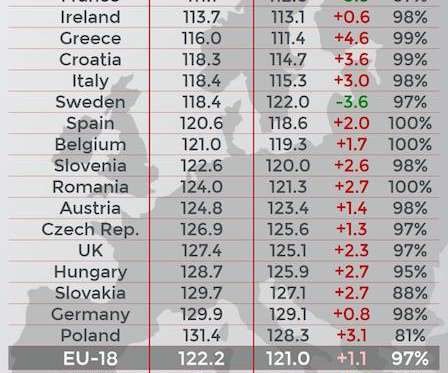Bosch, Shell, and Volkswagen develop renewable gasoline with 20% lower CO2; rollout of Blue Gasoline this year
Green Car Congress
MAY 4, 2021
Following on the introduction of R33 Blue Diesel ( earlier post ), Bosch, Shell, and Volkswagen have now developed a low-carbon gasoline. The new fuel, called Blue Gasoline, similarly contains up to 33% renewables, ensuring a well-to-wheel reduction in carbon emissions of at least 20% per kilometer driven.























Let's personalize your content